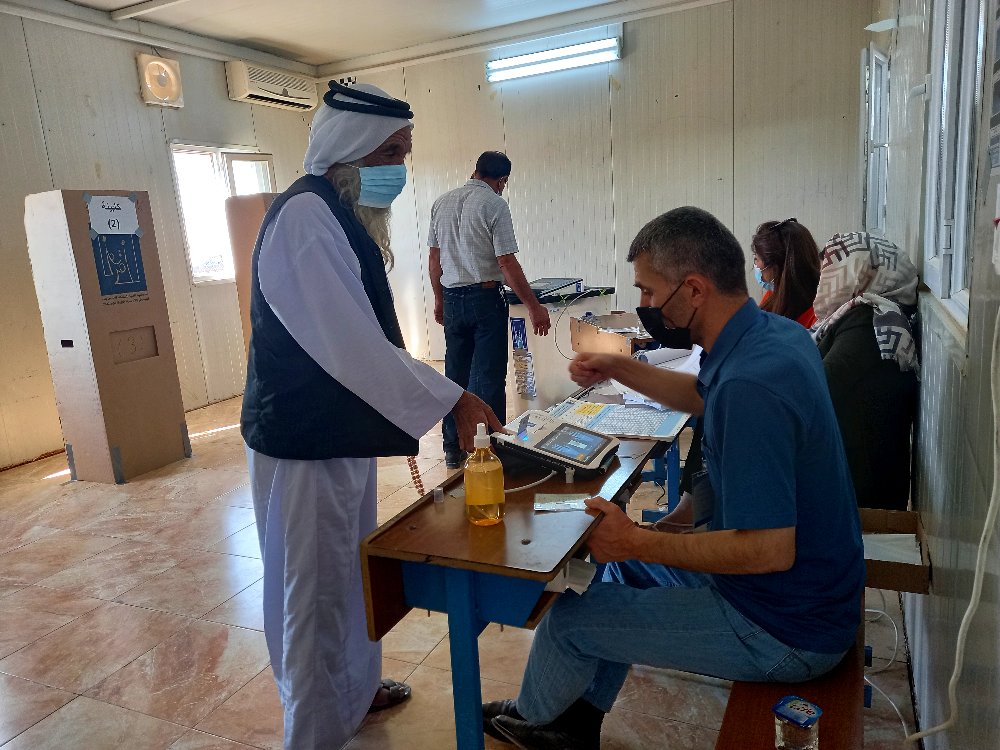The Internally Displaced Persons IDPs in the Iraqi Kurdistan Region IKR will be able to vote for the provincial council elections and cast their votes in two ways as over 48,000 IDP voters are entitled to participate in private voting only.
According to statistics from the Independent High Electoral Commission in Iraq IHEC, 48,260 IDPs people are entitled to participate in the provincial council elections scheduled to be held on December 18.
But in the 2021 parliamentary elections, the number of displaced people entitled to vote throughout Iraq was more than 120,000 voters.
Under the Election Law, the registry of displaced voters is based on the latest official statistics of the Iraqi Ministry of Immigration and Displacement, and the IDP residing in the camps has the right to cast his vote in his camp for the electoral district of his original area.
Voting for the displaced in the upcoming elections will be according to the voter’s biometric card, and the IHEC is committed to opening voting centers inside the camps so that they can cast their votes on the private voting day, 48 hours before the start of general voting.
The displaced people residing outside the camps will have to return to their original areas to cast their votes, while the government is committed to providing facilities for them and transporting them to the voting centers.
One of the paragraphs of the election law stipulates that only displaced people from Sinjar, whether they live inside or outside the camp, can vote directly for the Sinjar electoral district without the need to return to their areas of residence.
There are more than 600,000 IDPs in the IKR, 54% of whom are from Nineveh Governorate, most of whom are Sunni Arabs and the Yazidi component, some of whom are distributed among 26 camps, while the rest exceed 490,000 people residing outside the camps, according to statistics from the Joint Crisis Coordination Center of the Kurdistan Regional Government KRG.
All camps for displaced people in other governorates of Iraq have been closed, except for the Al-Jadaa Center for Psychological Rehabilitation and Reintegration of Displaced Persons into Society in Nineveh.
There are approximately 40,000 displaced voters in Dohuk Governorate, 5,000 in Erbil and about 4,000 in Sulaymaniyah, according to statistics obtained by KirkukNow from the IHEC. 120 stations within 35 polling centers will be open for the IDPs on the special voting day.
Under the electoral law, the Commission must recover the voter card from the displaced people who participate in the special vote and return it to them at another time via a receipt. It must specify their names and take measures to prevent their participation in the general vote as well.
In previous elections, displaced voters residing inside or outside the camps had to return to their area to vote, which led to the loss of the votes of thousands of them due to their inability to return under the pretext of security conditions and the difficulty of transportation.
In the parliamentary elections held in 2018, more than half of the displaced people, whose number was estimated at 450,000 people, were unable to cast their votes for several reasons, including not having a voter card or official documents, security obstacles, remoteness of the voting centers, and pressure by the political parties.
In the Iraqi provincial council elections on December 18, 2023, with the exception of the IKR, the records of more than 16 million citizens who will be entitled to vote according to the biometric voter card were updated to elect 285 members for the councils of 15 provinces.





